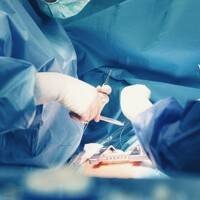Cancer is the leading cause of death in Hong Kong. In 2018 alone, 14,594 people died of various types of cancer, accounting for about one-third of deaths in the city. Among different cancer types, colorectal cancer and stomach cancer ranked second and sixth respectively in terms of their fatality rates, and both of them show increasing trends of incidence in recent years.
Colonoscopy and gastroscopy are the best ways to detect colorectal cancer and stomach cancer respectively. Not only can they allow appropriate treatments at an early stage, but they can also help prevent the development of cancer.
Colonoscopy - Preventing Colorectal Cancer
Colorectal cancer mainly evolves from intestinal polyps. Although intestinal polyps are benign, some of them may develop into malignant tumors when there is an accumulation of genetic mutations. The whole development takes about 7 to 10 years and can be asymptomatic. By detecting and removing polyps at an early stage before they turn malignant, colorectal cancer can be prevented.
Procedure of a Colonoscopy + Preparing for a Colonoscopy
Procedure of a Colonoscopy
Colonoscopy is a procedure to examine the lower gastrointestinal tract through an endoscopy.
A flexible tube with a diameter of about 1.3 cm and with a camera at the front will be inserted into the body from the anus. The patient’s lower digestive tract including the anus, cecum, colon, rectum, etc., will be examined to see if there is tumor, polyp, inflammation or bleeding. If something abnormal is observed, the tissue will be removed for testing, and hemostasis or polypectomy will be performed if necessary. Most patients require moderate sedation during colonoscopy, and the whole examination takes about 30 minutes.
Preparing for a Colonoscopy
Patients must follow the doctor's recommendation to eat a low-residue diet two to three days before and take laxatives one day before to empty the bowels, in order to make sure all areas of the intestines can be examined through the camera during a colonoscopy.
Who Should Get a Colonoscopy
Aside from patients who have developed colorectal cancer symptoms, it is recommended that people should get fecal occult blood tests and colonoscopy regularly from the age of 45 to 50 , given that there is a rising trend of younger people being diagnosed with colorectal cancer.
During a colonoscopy, if only a small amount of polyps is found and they show no signs of abnormality after being tested, patients can get another colonoscopy after 5 years. However, if there are as many as 20 to 30 polyps found, patients should get a colonoscopy again in the following year. If patients have an immediate family history of colorectal cancer and other risk factors, they should get a colonoscopy as early as 40 years old or 10 years before the family members' age when their colorectal cancer was diagnosed.
Risk Factors of Colorectal Cancer
- Men
- Aged 50 or above
- Inflammatory bowel disease such as Crohn’s disease
- Family inheritance
- Smoking
- Alcohol consumption
- Obesity
- Lack of exercise
- A low-fiber or high-fat diet
Gastroscopy - Preventing Upper Gastrointestinal Diseases
When there are genetic mutations in stomach cells, healthy cells may develop into malignant tumors. Studies have found that people infected with Helicobacter pylori may have a higher risk of stomach cancer. Gastroscopy is a routine examination that can help check if there is any abnormality, such as gastritis, esophagitis, gastric ulcer, esophageal ulcer, duodenal ulcer, gastric polyps, in the upper gastrointestinal tract, helping with the early detection of esophageal cancer and stomach cancer.
Procedure of a Gastroscopy + Preparing for a Gastroscopy
Procedure of a Gastroscopy
Gastroscopy is a procedure to examine the upper gastrointestinal tract through an endoscopy. A flexible tube with a diameter of about 0.9 cm and with a camera at the front will be inserted through the patient’s mouth to examine the esophagus, stomach and duodenum. If necessary, tissue will be removed from the stomach for further examination. Before the procedure, the patient's throat will be numbed with a local anaesthetic spray and intravenous sedation will be administered for a smoother examination. The whole process takes around 10 minutes.
Preparing for a Gastroscopy
Before a gastroscopy, patients will be asked to stop eating and drinking six hours before the procedure as recommended by the doctor.
Who Should Get a Gastroscopy
Patients who suffer from symptoms such as dysphagia, recurrent epigastric pain, acid reflux, indigestion, upper respiratory tract bleeding, loss of appetite, weight loss, etc., may need to get a gastroscopy. People aged 40 or above may undergo regular gastroscopy screening. If there is a family history of stomach cancer, the risk of developing stomach cancer will be two to four times higher than the average person, so patients should start regular screenings as soon as possible.
Risk Factors of Stomach Cancer
- Men, in general, have a higher risk than women
- Aging
- Helicobacter pylori infection
- Smoking
- Alcohol consumption
- Family inheritance
- Eating a high-salt diet including preserved and smoked foods for a long time


















